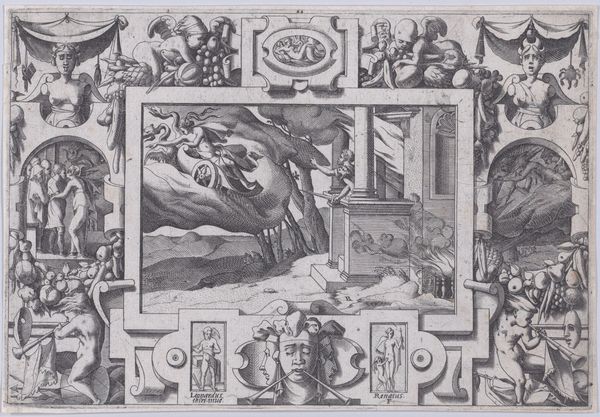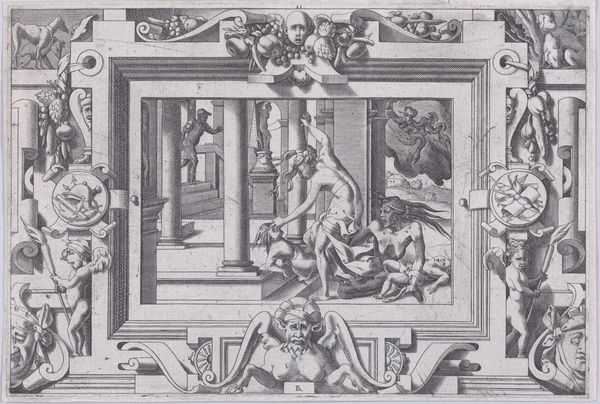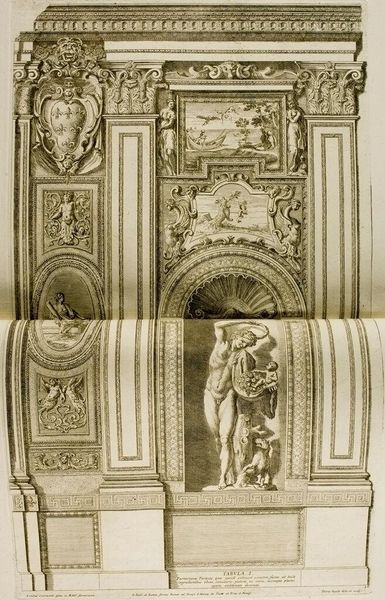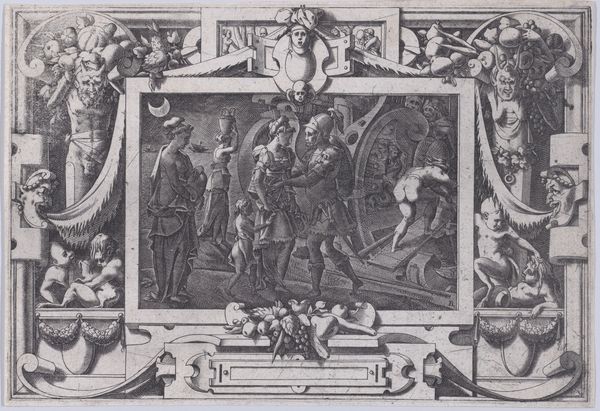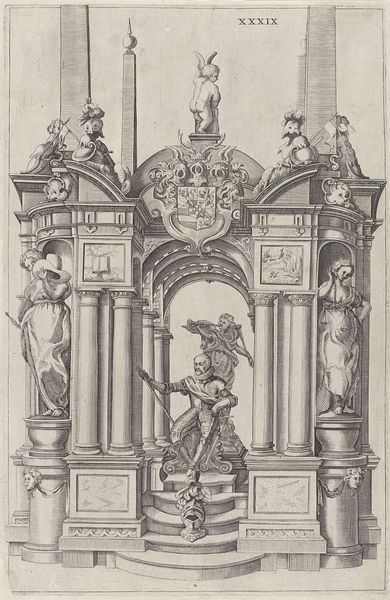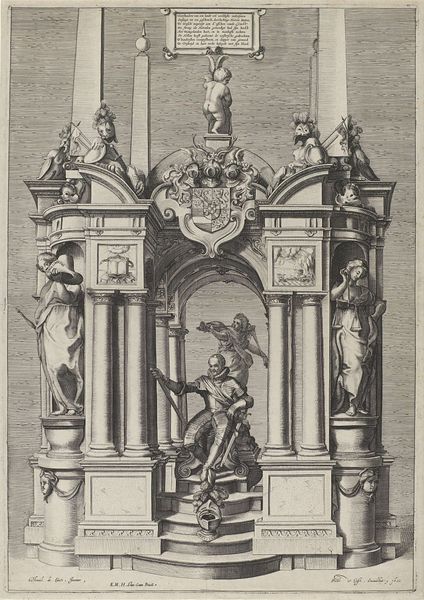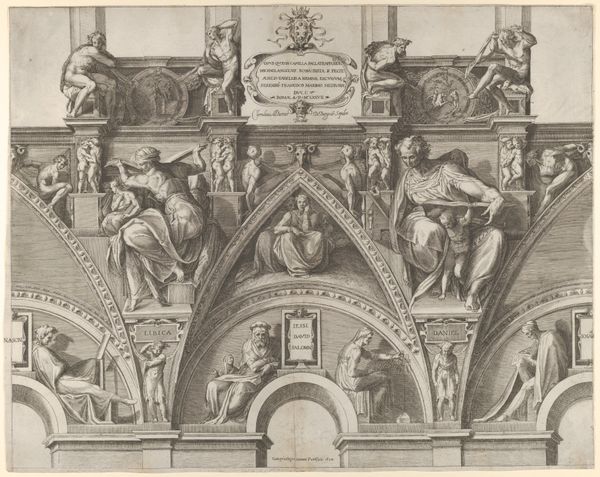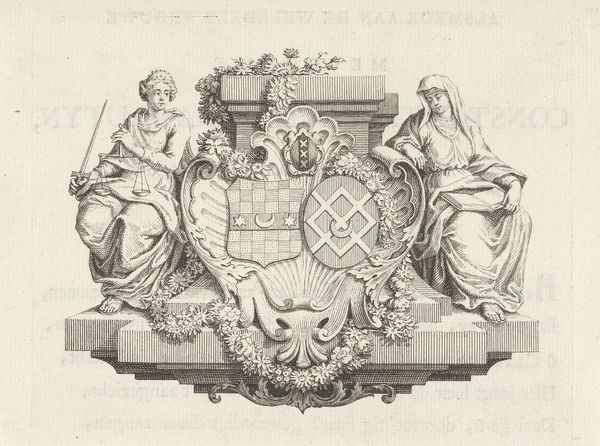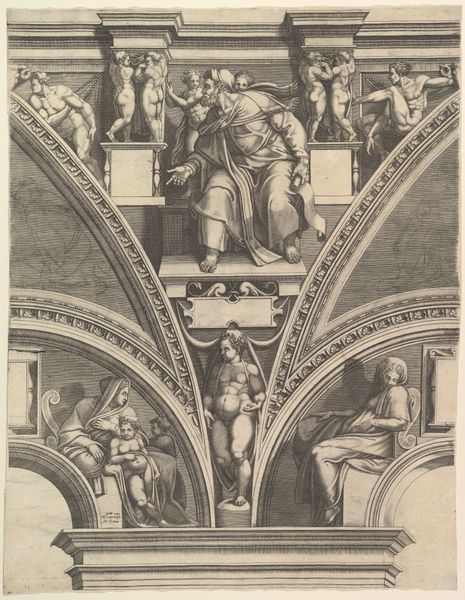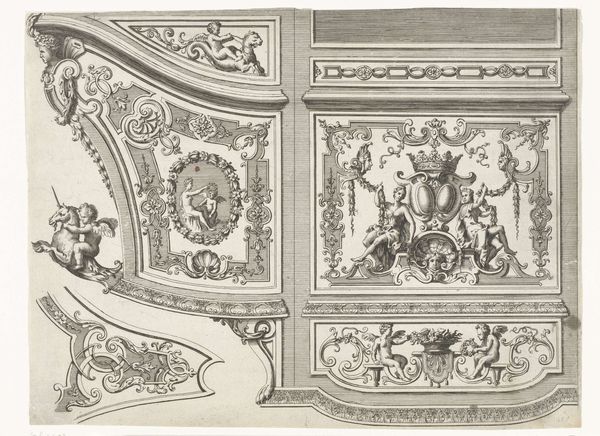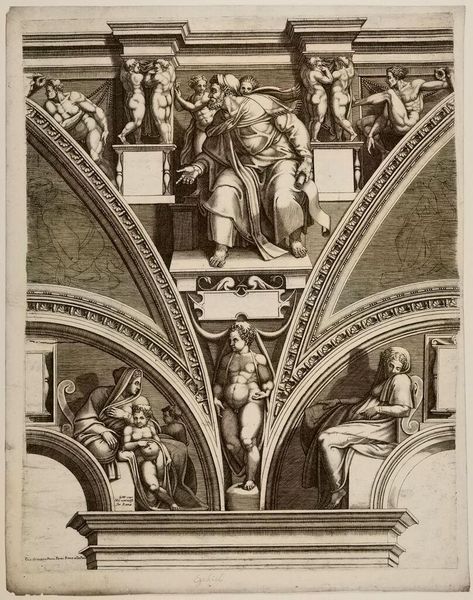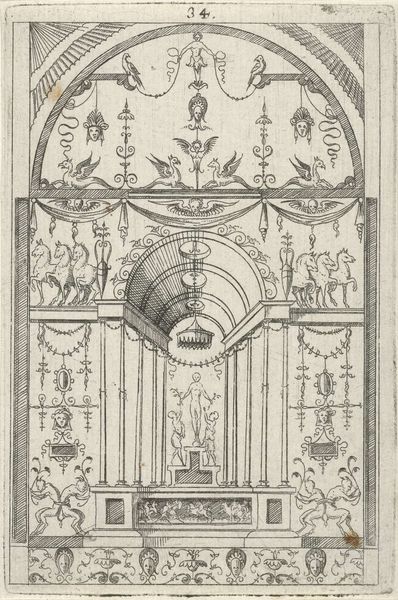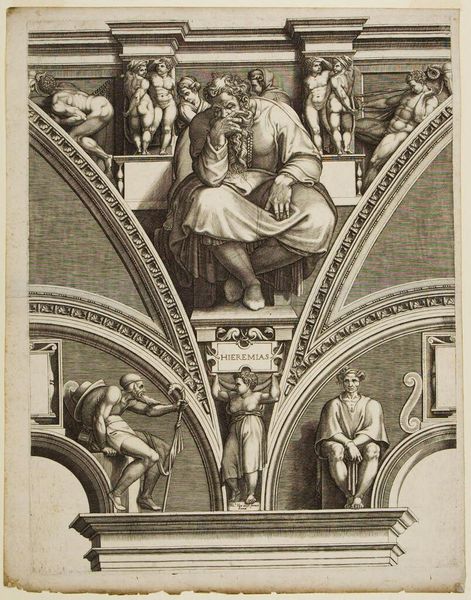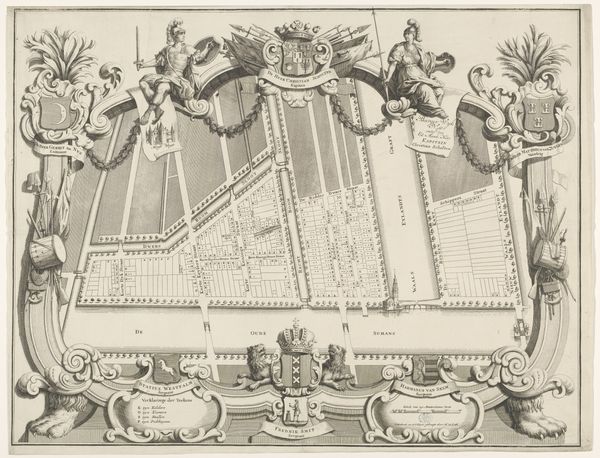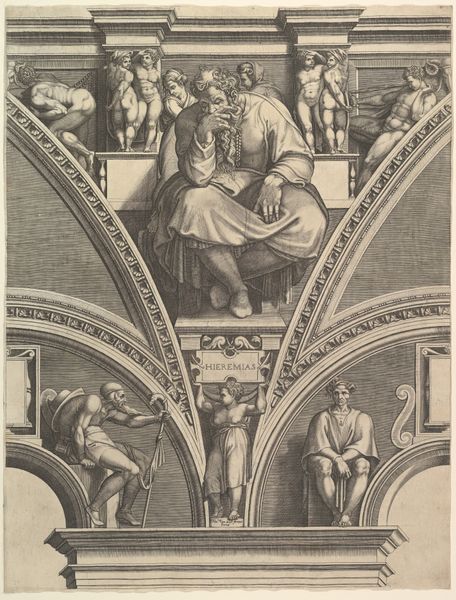
#
street view
#
sculpture
#
oil painting
#
unrealistic statue
#
street graffiti
#
underpainting
#
painting painterly
#
person holding a poster
#
historical building
#
statue
Copyright: Public domain
This fresco of David and Solomon was painted by Antoniazzo Romano, around 1500, as part of the Cappella Santa Anna. Frescos are a labor-intensive process, requiring careful layering of wet plaster onto walls, and then pigment applied before the plaster dries. The finished surface here is relatively smooth, but close looking reveals the traces of each brushstroke. The pigments themselves, made from ground minerals, would have been precious commodities at the time, and their skillful application indicates highly specialized labor. Consider how the nature of fresco painting, immediate and demanding, contrasts with other techniques like oil on canvas, which allow for reworking and adjustments over time. This permanence suggests the fresco wasn't just decorative, but also intended as a lasting statement of faith and power. Understanding the materials, the making, and the context gives us a richer appreciation of Antoniazzo Romano's creation, blurring the boundaries between craft and fine art.
Comments
No comments
Be the first to comment and join the conversation on the ultimate creative platform.
